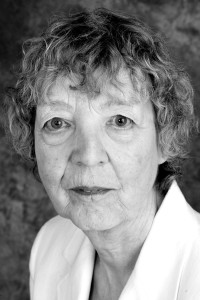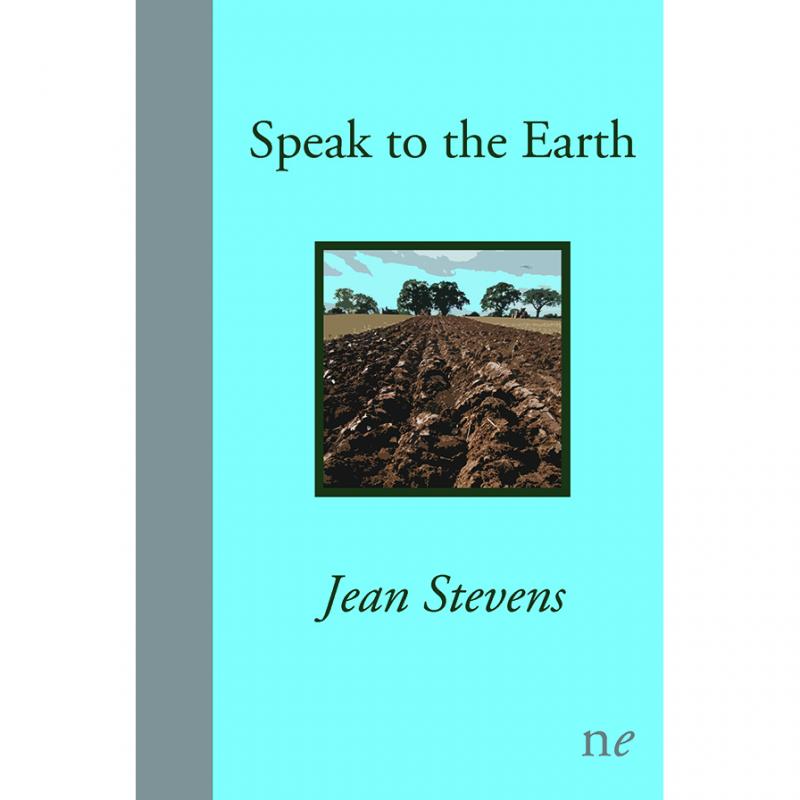

Steve Whitaker, Literary Editor
Hunting the Light: Speak to the Earth by Jean Stevens

Jean Stevens
There is real skill here. She slips the indices of growth in an undirected yearning, for that which is gone, that which is distanced in time and place, and that which may soon disappear. Her tone is inherently valedictory, an autumnal reflection in the figurative sense, and dimly aware of ‘extinction’s alp’ hoving into view, even as its summit turns chimera in the mist. Stevens’ relationship with landscape is existentially-charged, and in Speak to the Earth - a message of love and nourishment to the visible universe – she offers a fitting libation to a natural world which continues to give her comfort in times of retreat and contemplation.
That natural world, for Stevens, unites knotted threads. It may be a metaphor for teeming disharmony or a diffuser of reflection, a light-giver or a shadower of mood. But most, that which surrounds us is profoundly fragile. ‘Look’, the poet seems to say, ‘speak to the earth – listen to its cries, feel its deepening anguish’. The anger of the earth goddess, in the poem ‘Gaia writes home’ is a polemical figure for the re-ordering of human thinking. The ‘dumping grounds’ of mountains, and ‘plastic, strangled seals’ of the world’s oceans precipitate an impulse for revenge which, in any event, mimics our own masochistic folly:
I thought to hurl lightning thunderbolts
to drop fire and pestilence on their heads
but they’re doing all that themselves.
to drop fire and pestilence on their heads
but they’re doing all that themselves.
If Stevens cannot always find answers in her dialogue with nature, she can find a place of retreat. Her recourse is instinctive, knee-jerk, salutary, and in these senses, the incessant roving yields its own level of appeasement, as it did in her earlier outing for Naked Eye, Driving in the Dark. Here is the development of a poetics, even if unconscious to the poet, a sustained tonal and stylistic consonance which holds up a glass to a natural aesthetic, but recognises the limits of its power to do expression justice. Her poems are transparently honest to purpose: she understands that the catching of a moment’s wonder is to watch mercury slipping through the fingers:
I stumbled my way to April
when the first swoops
and curls across the sky
meant swallows returning
and I thought that
spring might come
in a burst of song. (‘Seasons’)
when the first swoops
and curls across the sky
meant swallows returning
and I thought that
spring might come
in a burst of song. (‘Seasons’)

It is significant, I think, that the poet frequently reverts to the kingdom of animals to behove an unlikely sentience, a preternatural awareness of ecological conditions in these innocent bystanders caught in a cataclysm not of their own making. That our complicity in their undoing is met with utter indifference is a yardstick both of our failure and of their impervious biological disinterest. Stevens’ metaphor-rich, Hughesian excursion, ‘Night safari’, is an act of oblation before an unfathomable depth of raw organic power:
I knelt by the narrow divide
and a leopard lay opposite,
mirrored light in his midnight eyes.
He didn’t blink and I was held
till he stretched and showed his claws.
I turned to the man who stood next to me,
We’re nothing he said.
and a leopard lay opposite,
mirrored light in his midnight eyes.
He didn’t blink and I was held
till he stretched and showed his claws.
I turned to the man who stood next to me,
We’re nothing he said.
And, in a forceful and hypnotically repetitive hymn to the inner world of the dog, a calculated canine resentment is imagined. Outer shows of ‘sit up and beg’ compliance conceal a lupine pack instinct whose contempt is howled in the night and ‘across continents’ (‘The dogs’). However sardonic the informing urge, many of Stevens’ poems are correctives, much needed re-calibrations of a universe knocked off its semantic axis by climate change, species destruction and capitalism without constraint.
Also by Steve Whitaker...
Poem Of The Week: Off Duty By Katie DonovanBread And Roses: Jennie Lee At Bingley Little TheatrePoem Of The Week: Cargoes By John Masefield (1878-1967)Blown Apart By The Sun: Strike By Sarah WimbushPoem Of The Week: Home Thoughts, From Abroad By Robert Browning (1812-1889)Her own ‘bootleg trail’, her pilgrimage of self-discovery, will not be stifled or subordinated to the anodyne inducements of mass perception. We should be grateful. For half-submerged in the Malebolge of existential unease, she reveals the glint of hidden pearls. Open, emotionally consistent and sincere, Jean Stevens’ work is fearfully exposed to the light. At one moment dwelling on the sacred garden of childhood as though still luminously present in memory (‘Back’); at another, considering the seaward-blent, stationary passage of Antony Gormley’s rusting figures overlooking the Irish Sea - Stevens’ remains seismically aware of the paradoxical interface dividing hope and engulfment (‘Crosby Beach’).
But most affectingly, her mood shapes and is shaped by that which she contemplates, traces of the poet/self etched in the furniture of an imagined tableau, like a palimpsest. Her poetry conceived in easy metrical interchanges which uncannily reflect the ebb and the flow of time’s oceanic shifts, Stevens’ is at her very best when she says very little, leaving the reader to ingest the breath of history in the fabric of the present:
It’s cloistered in the depths of valley
inside this old house, where cellos
have left echoes in the stone,
poets’ words are carved in the beams,
and the bones of cattle lie under slate (‘Hefted’)
inside this old house, where cellos
have left echoes in the stone,
poets’ words are carved in the beams,
and the bones of cattle lie under slate (‘Hefted’)
Speak to the Earth is published by Naked Eye.
http://nakedeyepublishing.co.uk/